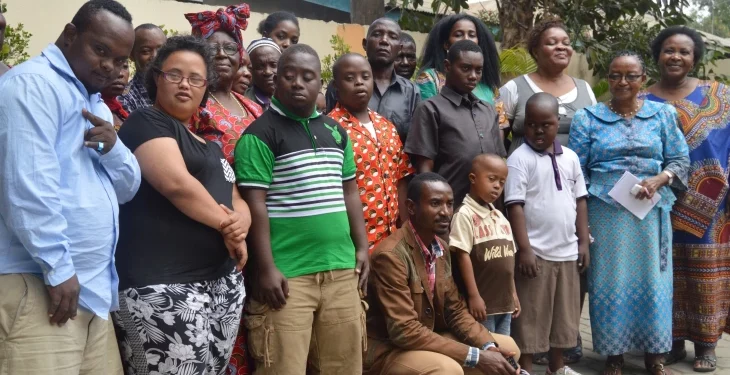Recently, the international community marked Down Syndrome Day – a day set aside to raise global awareness about this genetic condition and promote the rights, inclusion, and well-being of those affected by it.
Yet, in Nigeria, as in many other parts of the world, individuals with Down syndrome remain largely unseen, unheard and undervalued members of society.
It is instructive to note that Down syndrome is a genetic disorder caused by the presence of an extra copy or part of chromosome 21. It leads to varying degrees of intellectual disability and developmental delays, as well as distinct physical characteristics.
The World Health Organization (WHO) estimates that Down syndrome affects roughly 1 in 1,000 live births worldwide, though the prevalence rate in Nigeria is unknown due to a lack of data.
What we do know, however, is that people with Down syndrome in Nigeria face immense, unacceptable challenges at every turn – challenges rooted in widespread ignorance, discrimination, stigma, and the systemic denial of their fundamental human rights.
In some Nigerian communities, the cruel insanity of superstition still reigns. Children born with Down syndrome are viewed not as human beings deserving of dignity, but as harbingers of misfortune, possessed by evil spirits.
This myth, borne out of lack of education, fuels the flames of fear, ostracism and abuse.
Even in communities where such ancient prejudices have faded, individuals with Down syndrome are met with stares, whispers, and a shocking lack of understanding about their condition and capabilities. This insidious stigma is perhaps their biggest cross to bear.
Discrimination follows them throughout their lives, barring them from accessing quality healthcare, education, employment, and the opportunity to participate meaningfully in society. The irony is devastating – the very societal support systems that could enable them to thrive are frequently denied them.
In the area of healthcare, a critical need for individuals with Down syndrome who are prone to congenital defects and other complications, the outlook is bleak.
An alarming dearth of trained providers, facilities, and affordable, specialized care ravages the community. Many struggle to manage painful, life-threatening conditions without recourse.
The education landscape is equally dire. While inclusive education policies exist on paper, implementation has been lacking.
Children with Down syndrome are routinely turned away from schools ill-equipped to accommodate their unique learning needs, robbing them of foundational skills and a path forward .
Even when admitted, inadequate funding, training, and resources undermine their prospects.
In the workforce, the discrimination is often overt. Employers routinely spurn applicants with Down syndrome, assuming they are incapable or unworthy despite a range of abilities.
The vicious cycle of exclusion is perpetuated, denying them economic empowerment and dashing dreams.
The government’s failure to institute robust legal protections compounds this injustice at every level.
While laws nominally barring discrimination exist, enforcement is lacking. Too often, the rights of the Down syndrome community are trampled without consequence.
Let this resound as a call to action for the federal government and its people. Mere awareness campaigns are not enough – we must dismantle the systemic barriers, discrimination, and dehumanization that have marginalized this community for far too long.
We must rectify the inexcusable knowledge and data gaps with comprehensive research and awareness efforts targeting healthcare workers, educators, employers, and the public. Only through education can we uproot the insidious stigma poisoning hearts and minds.
We must overhaul the healthcare system to provide affordable, specialised care and equip providers with the training to properly diagnose, treat, and accommodate patients with Down syndrome. Their lives and wellbeing must be prioritized.
Our education policies must be dragged into the 21st century, propelled by funding and enforcement to make inclusive, supportive learning environments a reality for all children with Down syndrome and special needs. As a newspaper, we suggest that segregation be dumped into the dustbin of history.
Most critically, we must enshrine robust legal protections to safeguard the Down syndrome community’s rights as citizens.
Their struggle must transition from an uphill battle to an assured guarantee of dignity, access, and inclusion without caveats.
On this World Down Syndrome Day, the nation must reject complacency and shine a searing light on the forgotten faces residing in the shadows of our society. The time is now to open our eyes, minds and hearts to the Down syndrome community and ensure they claim their rightful place among us as equals.
They are friends, colleagues, and members of our human family – not victims, burdens, or sources of shame. Embrace them not in spite of their differences, but because diversity is a strength and a virtue to be celebrated.
The path will not be easy, but the moral imperative is clear. We cannot afford to turn a blind eye to injustice any longer. Judge us by how we treat the most vulnerable among us.
Let us finally grant them the respect, opportunities, and affirmation of human dignity they have been criminally denied for far too long.



